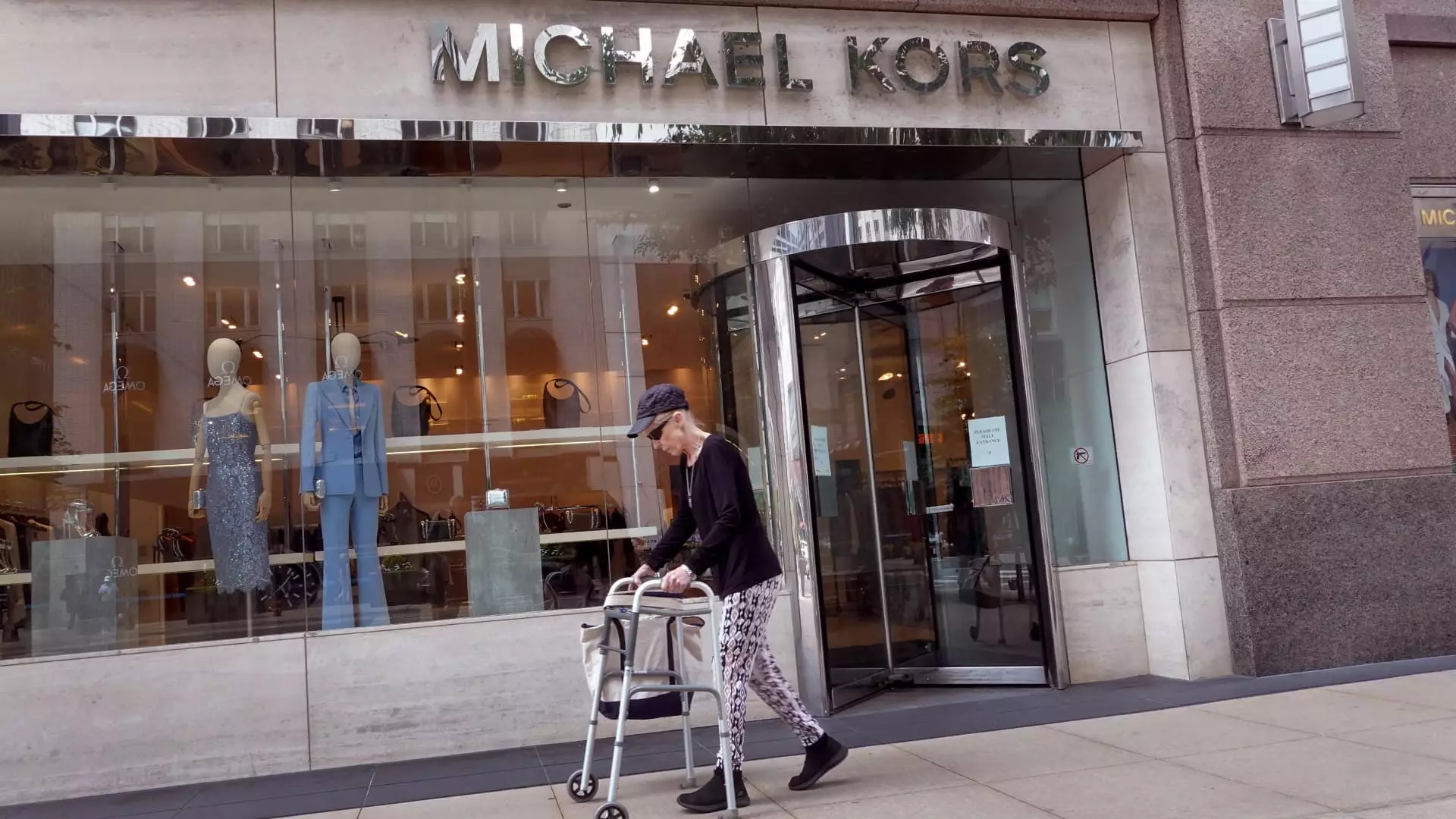In a significant development in the luxury goods industry, Capri Holdings and Tapestry Inc., two of the largest American luxury fashion houses, announced the termination of their planned $8.5 billion merger on Thursday. This unexpected decision followed the Federal Trade Commission’s (FTC) successful lawsuit aimed at blocking the deal, citing potential harm to consumers and employees alike. The statement from the two companies confirmed that both parties agreed it was in their best interest to abandon the merger, especially with the regulatory clock ticking down to a February deadline.
This merger was intended to unite six powerful brands: Tapestry’s Coach, Kate Spade, and Stuart Weitzman alongside Capri’s Versace, Jimmy Choo, and Michael Kors, marking a significant consolidation in the luxury market. However, the FTC’s intervention, labeled as necessary for maintaining competition, shifted the narrative surrounding this high-profile deal from one of opportunity to a challenging reality.
The FTC’s argument against the merger centered around the idea that combining two significant players would lead to reduced consumer choice and diminished quality of service for the employees impacted by the merger. Following a ruling from a federal judge that upheld the FTC’s motion for a preliminary injunction, Tapestry sought to appeal but ultimately realized that the path forward was fraught with complications.
Capri’s CEO, John Idol, expressed regret but emphasized his confidence in the company’s individual growth trajectory. The fallout from the merger’s collapse highlights both companies’ challenges in navigating a market that is increasingly sensitive to competitive practices. For Tapestry, the end of the merger means redirecting efforts and resources towards its existing portfolio rather than attempting to integrate new brands.
Now that the merger is off the table, Tapestry is committed to using the financial resources previously earmarked for the merger to accelerate organic growth strategies. CEO Joanne Crevoiserat stated that the company has “multiple paths to growth,” indicating a shift in focus back to their established brands rather than the expansion through acquisition. This decision appears strategic, especially considering the market’s recent skepticism regarding the merger.
Additionally, Tapestry announced a robust plan to repurchase approximately $2 billion in shares, utilizing a combination of cash reserves and debt financing. This reflects a confidence in their current operating model and a commitment to returning value to shareholders, even amidst changes in corporate strategy.
The abrupt termination of the merger has immediate financial implications for both companies. Tapestry has agreed to reimburse Capri approximately $45 million to cover expenses incurred during the merger process. This compensation underscores the financial frictions stemming from the failed agreement, but Tapestry seems prepared to absorb this loss as part of its broader growth strategy.
In the aftermath of the legal challenges, the stock market reacted predictably: Capri’s shares experienced a significant drop, while Tapestry’s stocks gained ground. This shifting of sentiment highlights the market’s perception of value and potential for growth following the collapse of the merger talks.
As Capri faces the daunting challenge of restoring its once-pristine brand reputation, its leadership has committed to implementing strategic initiatives aimed at reversing a decline in sales, particularly for the flagship Michael Kors brand. Idol acknowledged the challenges faced over the past 18 months and articulated a clear focus on enhancing brand desirability through innovative strategies involving communication, product offerings, and an optimized consumer experience across all touchpoints.
This emphasis on revitalization could signal a turning point for Capri, provided that these initiatives yield tangible results. Analysts will be watching closely to see how effectively Capri can re-establish its market position and consumer appeal in a changing luxury landscape.
The cancellation of the Capri-Tapestry merger serves as a powerful reminder of the complexities inherent in corporate consolidations, especially in heavily regulated markets like luxury goods. As both companies navigate their individual paths forward, the landscape will continue to evolve, demanding agility and innovation. For industry watchers and investors alike, the unfolding drama presents a pivotal moment that could redefine the trajectories of some of the most recognizable names in luxury fashion.

